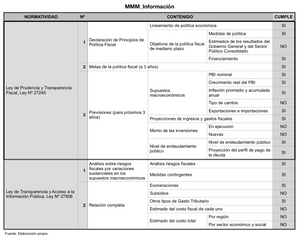Peru and the OECD
- Astrid C. Córdova Pelayo
- Oct 14, 2018
- 2 min read
Since December 2014, Peru has been involved in an Organisation for Economic Co-operation and Development (OECD) Country Programme which comprises international guidelines and recommendations for 5 key areas: Economic growth, public governance, anti-corruption and transparency, human capital and productivity, and environment. The reason of conducting this joint work is being admitted as a full member of one of the most influential international organization by 2021, which coincides with the Peruvian Bicentennial Independence anniversary.
All this, off course, it is not an easy path to follow given that there is much work to do in terms of public governance and integrity, fiscal policies, environmental management, and the list may continue. At this point of time, Peruvian government has been implementing different measures and policies in different sectors so as to align our policies with the international higher standards.
Regarding to the economic and fiscal aspect, the Tax Code was modified to facilite the exchange of information with other tax administrations and mutual assistance. This reform is aligned with the BEPS (Base Erosion and Profit Shifting) Multilateral Convention -an international tax co-operation agreement- which was signed last June during the 5th plenary meeting of the Inclusive Framework on BEPS held in Lima. Although the Convention is not enough to fully address tax avoidance practices by multinational enterprises, it represents a considerable achievement for the international community.
Likewise, recently Peru was admitted to ATP Expert Group in charge of keeping an updated database on aggressive tax planning schemes and trends submitted by its country members. The ATP Directory allows countries not only to share information concerning tax planing practices but also enables government officials to timely respond to detrimental taxation practices which pose a threat for the revenue purpose of countries by implementing accurately policies and measures.
Last but not least, in the domestic scenario the Ministry of Economy and the Tax Authority (SUNAT) have enacted relevant legislation related to the BEPS project. To illustrate, we can point out that the Legislative Decree #1312 and the Supreme Decree #333-2007-EF that amends the Peruvian transfer pricing report and provides guidelines on the preparation and submission of the local file, master file and country-by-country report, respectively. Beside it is required taxpayers to electronically submit the master file and country-by-country report annually according to Ruling #163-2018/SUNAT.
Peru is taking action to strength the transparency and collaboration based on the BEPS core principlesFinally, it is important to acknowledge that : coherence, substance and transparency. Despite this there is still a long way to go.







Comments